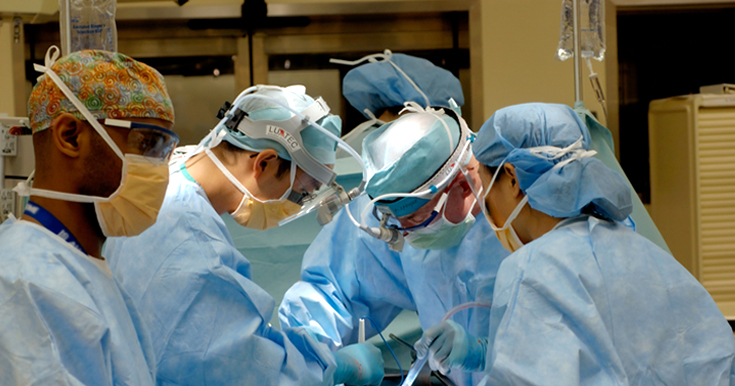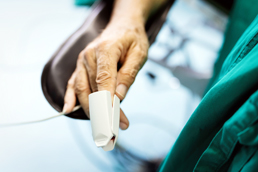The Importance of Routine Heart Check-ups
Why is it important for routine heart check ups? It has been seen that many patients face serious heart conditions without regular heart check ups. Regular health screening or heart check up can figure out health issues.
Routine heart check-ups are of paramount importance for maintaining cardiovascular health and preventing serious heart-related conditions. With regular heart checkup, you can expect to:
- Early Detection of Risk Factors
- Prevention of various Heart Disease
- Identification of Existing Heart Conditions
- Assessment of Cardiovascular Fitness
- Monitoring Existing Heart Conditions
- Lifestyle Counseling
- Peace of Mind
Routine Heart Check-ups: What Are The Importance?
What is the importance of Routine Heart Check-ups? You may now ask what is routine health checkup? Well, a routine health checkup, also known as a periodic health examination or preventive health checkup, is a comprehensive medical examination conducted by healthcare professionals to assess an individual’s overall health status and detect any underlying health conditions or risk factors.
The specific components of a routine health checkup may vary depending on factors such as age, gender, medical history, and individual risk factors. Following part is going to discuss the reasons for routine heart check ups. So, go down.
1. Early Detection Of Risk Factors
Regular heart check-ups enable the early detection of risk factors such as high blood pressure, high cholesterol levels, diabetes, obesity, and family history of heart disease. Identifying these risk factors early allows for timely intervention and the adoption of preventive measures to minimize the chances of developing heart problems.
Read Also : 10 Things To Know Before A Renal Transplant
The healthcare provider will discuss your medical history, including any current symptoms, past illnesses, surgeries, and medications you are taking. This information helps them understand your health background and assess potential risks.
2. Prevention of Heart Disease
Heart check-ups aid in the prevention of heart disease by monitoring and managing risk factors. Through routine screenings, healthcare professionals can assess the overall health of your heart, identify potential issues, and provide guidance on lifestyle modifications, medication, or other interventions to prevent heart disease from developing or progressing.
What is the importance of routine heart check-ups? – routine heart check-ups play a vital role in preventing, detecting, and managing heart-related conditions. They empower individuals to take proactive steps towards maintaining a healthy heart, promoting overall well-being, and reducing the risk of serious cardiovascular complications. Consult with a healthcare professional to determine the appropriate frequency and type of heart check-ups based on your age, medical history, and risk factors.
3. Identification of Existing Heart Conditions
Routine heart check-ups help in the identification of existing heart conditions that may be asymptomatic or in their early stages. Conditions like arrhythmias (abnormal heart rhythms), heart valve problems, congenital heart defects, or heart muscle diseases can be detected through comprehensive examinations, including electrocardiograms (ECGs), echocardiograms, and stress tests.
As part of a routine health checkup, healthcare professionals may provide health education and counseling. They can discuss lifestyle factors such as diet, exercise, weight management, smoking cessation, alcohol consumption, stress management, and other habits relevant to maintaining overall health and preventing chronic diseases.
4. Assessment of Cardiovascular Fitness
Heart check-ups can provide insights into your cardiovascular fitness level. Various tests like exercise stress tests, which measure heart function during physical exertion, can help assess your heart’s efficiency and capacity to meet the demands of physical activity.
A physical examination involves the healthcare provider assessing your general appearance, vital signs (such as blood pressure, heart rate, and temperature), and conducting a head-to-toe examination of your body. They may examine your heart, lungs, abdomen, skin, and other body systems to detect any abnormalities.
This information is vital for determining appropriate exercise regimens and identifying any exercise-induced heart abnormalities.
5. Monitoring Existing Heart Conditions
For individuals already diagnosed with heart disease or other heart-related conditions, routine check-ups are crucial for monitoring their condition and ensuring that the prescribed treatments are effective. Regular evaluations allow healthcare providers to make necessary adjustments to medications, therapies, or lifestyle recommendations to manage the condition optimally.
Routine health checkups are an opportunity to review and update immunizations. Your healthcare provider may recommend vaccines such as influenza, tetanus, diphtheria, pertussis, measles, mumps, rubella, pneumococcal, or hepatitis, depending on your age, vaccination history, and specific risk factors.
6. Lifestyle Counseling
When we are talking about the importance of routine heart check-ups, it depends on your age, gender, and risk factors, specific screening tests may be performed during a routine health checkup. Examples include mammograms for breast cancer screening, Pap smears for cervical cancer screening, colonoscopies for colorectal cancer screening, and prostate-specific antigen (PSA) tests for prostate cancer screening. Other screenings may focus on conditions such as osteoporosis, vision, hearing, and mental health.
Heart check-ups provide an opportunity for healthcare professionals to offer personalized guidance on maintaining a heart-healthy lifestyle. They can provide advice on nutrition, exercise, stress management, smoking cessation, and other lifestyle factors that significantly impact heart health. Such counseling empowers individuals to make informed choices and adopt habits that promote cardiovascular well-being.
7. Peace Of Mind
Routine health checkups often include various laboratory tests to evaluate different aspects of your health. These may include a complete blood count (CBC), lipid profile (to measure cholesterol levels), blood glucose test, kidney and liver function tests, thyroid function tests, and urinalysis, among others. These tests can provide valuable information about your organ function, blood parameters, and metabolic health.
Routine heart check-ups offer peace of mind, knowing that you are actively monitoring and taking charge of your heart health. Regular screenings can provide reassurance about the state of your cardiovascular system and reduce anxiety associated with uncertainties or undiagnosed conditions.
Bottom Line
Now you know the importance of routine heart check-ups. Note that the specific components of a routine health checkup can vary based on individual circumstances and healthcare provider practices. It’s recommended to consult with ILS hospital for the best cardiologist. Healthcare provider to determine the appropriate screenings and tests for your age, gender, and medical history.
They can tailor the checkup to your specific needs and provide personalized recommendations for maintaining and improving your health.
Neurologists: Who are they and what do they treat?
A medical professional who is specialised in the treatment, diagnosis and management of diseases and disorders related to the brain and the nervous system is called a neurologist. Neurologists are incredibly
specialised professionals who treat gravely serious conditions like epilepsy, multiple sclerosis, Alzheimer’s disease, stroke, migraine, etc. Diseases like these can leave a person unable to take care of themselves if kept untreated and lead, directly or indirectly, to fatal consequences.
Your brain is an amazing organ that works day and night to maintain your body’s equilibrium and keep your other organs functional. Unlike you, it never sleeps. As explained by one of the best neurologists in Kolkata, people often ignore neurological problems, thinking it’s just a tension headache or something. However, it can signify a more serious problem, especially if your symptoms are recurring and extreme. So, it is recommended to get regular checkups.
What are the different types of Neurologists?
The different types of neurologists specialise in treating different types of conditions or may treat a specific age group. For example, a pediatric neurologist is a neurologist who specialises in treating neurological disorders in children. “Children may also face several nervous system problems, in which case, a neurologist becomes essential “, says the best neurologist in Kolkata.
What conditions does a Neurologist treat?
A neurologist treats several conditions ranging from simple migraine attacks to complex emergencies like cerebral stroke. A neurologist treats the following:

- Alzheimer’s caused by dying brain cells that leads to mental degradation.
- Stroke is the medical emergency caused when oxygen supply is cut out due to a clot or ruptured blood vessels.
- Migraine, which is a severe form of headache that often occurs with vision problems and nausea.
- Epilepsy which to recurring blackouts and sudden seizures.
- Multiple sclerosis a disease caused due to damaged brain and spinal cord nerve cells leading to speech
disorders, vision problems, numbness and severe weakness. - Parkinson’s disease, brain tumours, Tourette’s syndrome, infections are also treated by the neurologist.
How does a Neurologist treat conditions?
Neurologists examine the patient, order tests, diagnose diseases, prescribe medicines and sometimes perform certain procedures to help manage or cure the disease.
A neurologist will examine a patient properly to understand their problem. They will listen to your symptoms and ask about your medical history like a physician. The brain is related to many of our motor functions. A neurologist often examines and tests these functions in their patients, including speech, sensation, vision, mental condition, coordination and reflex.
A thorough examination is essential for the right diagnosis. Even with all the modern technology, a
neurological examination is the best way to figure out any condition in the early stages, which results in
a better prognosis and treatment outcome.
Depending on the examination, they will either prescribe you medications or order further tests. A neurologist is essential to perform some highly technical medical tests, which are extremely useful for clinical diagnosis. Some of them are:
- Magnetic Resonance Imaging (MRI)
- Electroencephalography
- Computed tomography (CT)
- Nerve Conduction Studies (NCS)
- Lumbar puncture commonly used for cerebral fluid tests.
Neurologists are medical professionals who help diagnose, treat, and manage several brains and nervous system disorders. It is crucial to consult one if you ever experience any severe symptoms related to the brain or nervous system like headache, problems with vision or memory, dizziness, migraines, etc. We, at ILS Hospitals, have some of the best neurologists in Kolkata; in case of emergencies, contact us today.
Post-Cardiac Surgery Complications – What All Should Be Avoided After A Heart Surgery
Surgeries, of any nature, are complicated and require utmost care and precision. Especially, pre- and post-heart surgeries, everybody needs several weeks to heal itself. The post-care after surgery or ailment is equally valuable and should be a slow & progressive process. The gravity of post-cardiac surgery care must not be overlooked for faster recovery.
Cardiac surgery differs from general surgery, but general surgery hospitals might tell you about what to be avoided after heart surgery. Many general surgeons in Kolkata will guide you through post-cardiac surgery care.
Interventional cardiology is an advanced branch of cardiology that deals with non-invasive techniques to evaluate the functions of the heart and detect abnormalities. Some of the most common interventional cardiology procedures are as follows:
- Coronary catheterization
- Angioplasty and stenting
- Percutaneous Valve Repair
- Balloon Angioplasty
- Atherectomy
Keeping this in mind, we have compiled the complications and preventions of post-surgery conditions that will help you enjoy a healthy life.
Post-Cardiac Surgery Complications
Cardiac surgery is usually done if there is a blocked artery to the heart. As much as it is a matter of care before proceeding with the surgery, it is imperative to be vigilant after the surgery.
Following is the list of complications that might arise after the cardiac surgery-
1 – Chest Infection
After the surgery and anaesthesia, there is a possibility of chest infection in the patient. Depending on the severity, antibiotics and painkillers are used to subdue the infection.
2 – Heart Attack or Stroke
Generally, this may happen if you have a history of cardiac ailments and have undergone surgery. Post-surgery strokes can impact the recovery and will require extra care.
3 – Kidney Failure
In rare cases, the kidney stops functioning post-surgery. In most cases, kidney failure is temporary and is resolved by dialysis.
4 – Blood Clots
Post-surgery, blood clots may form in the body if the patient has a history of obesity, chain smoking, or immobility. Usually, the clots start from the legs and move to the lungs resulting in serious problems.
5 – Post-operative Bleeding
Cardiac surgery involves a lot of incisions and suturing. Sometimes, the bleeding continues after suturing, and fluctuations are observed in the blood pressure. Surgeons take necessary measures to normalize the condition of the patient.
6 – Other
Other complications include irregular heartbeat, chest pain, delirium, difficulty in breathing, insomnia, nausea, poor appetite, constipation, sore throat, and fatigue. But they go away with time.
Post-Surgery Care
1 – Incision Healing
Cardiac surgery includes a lot of incisions and suturing. Thus, post-surgery, avoid direct contact of water with the incision to mitigate any infection on the incision site.
2 – Stop Smoking
While recovering from heart surgery, it is crucial to keep smoking at bay to avoid further complications in the heart and lungs.
3 – Exercising
Any general surgeons in Kolkata will prescribe light exercise or climbing the stairs after cardiac surgery. But at the same time, faster recovery needs enough rest and sleep. Avoid over-exercising and over-sleeping.
4 – Mental Health
Post-surgery, the stress in mind means stress on the heart. Involve yourself in small activities and meditation to avoid stress, depression, anxiety, and anger while recovering. Living happily post-surgery expedites the recovery process.
5 – Eating Habits
Avoid eating oily and fried food. Eat healthy food or consult dieticians in the general surgery hospitals to enquire about post-surgery diet plans. Loss of appetite is common post-surgery but keeping a healthy diet plan balances your hunger.
At ILS Hospitals, we are well-equipped to administer pre-cardiac and post-cardiac surgery care. With the best surgeons’ team, we provide all the treatment and care needed to the patient after cardiac surgery.
Whether it be general surgery or Interventional cardiology like Angioplasty or Valvuloplasty, you need experienced and top cardiologists & surgeons. Even here, the post-surgery aftercare is imperative to recover to your daily routines. We at ILS Hospitals can assist you with clinical cardiology or even general surgery.
If you wish to know more about interventional and clinical cardiology, or other medical treatments in the hospitals, call ILS Care, +91 90514 60000 or visit https://www.ilshospitals.com/
Why Every Child Needs the ‘Child Checkup Package’?
As Benjamin Franklin had rightly said, “An ounce of prevention is worth a pound of cure.” The standard procedure of treatment that onsets after the symptoms begin to persist, and home remedies don’t work. After a series of discussions and screenings in the hospitals, a particular disease is recognized and suitable medications begin accordingly. This situation is far more delicate for the children.
To mitigate such long procedure and to ensure that children stays in good health, the hospitals are taking initiatives regarding the same. Meanwhile, we have introduced one of the best screening for children. It is called the ‘child checkup package’ and it comprises of the following tests-
- Complete hemoglobin with ESR profile
- ABO and Rh blood grouping
- Fasting blood sugar
- Urine test and
- Stool test

Each of these tests has its own significance. For instance, knowing the exact blood group will help greatly to deal with any serious medical emergency that need blood transfusion. Precious minutes can be spent to collect the suitable blood group, instead of doing a blood test and awaiting its result.
The stool and especially urine test in this season is very helpful to keep a track on the excretory system of children. During winters, children tend to drink a very limited amount of liquid and often this habit clings on to them even when summer arrives, which causes a higher concentration of salts in urine. A timely screening would disclose the exact condition and thus, the child can be guided to be more careful.
The best feature about this checkup package is that it comes with a complimentary session with a pediatrician. Thus, instead of simply handing over a bunch of paper with numbers and ranges on it, this package gives parents some quality time with a doctor for consultation. This way, the parents become aware which aspects of their child to be more careful for.

The child checkup package offered by ILS Hospital is very economical and affordable. It is best to keep these mentioned vitals in check and take preventive measures on time, rather than let them bloom over time and then take corrective measures for the same.
Thus, the child checkup package is recommended for every child to ensure a healthy childhood, growth and development.
Why Child Health Checkup Package is an Apt Health Choice for Your Kid?
As rightly Malala Yousafzai has said, “Let us remember: one book, one pen, one child and one teacher can change the world.” The health and wellbeing of the children are one of the most important factors for any country to have a stable and strong. Typically the journey of a healthy child begins as a healthy baby.
In fact, the health and care of an infant are usually carried out in several hospitals. However, once the child crosses the infancy line, the growing years become susceptible to several infections adding potential medical harm.

Thankfully, most of them are cured with the help of medical treatment. But, the stress, time, money and energy spend for the same can be reduced significantly with proper planning of the future.
Keeping these factors in mind, ILS Hospitals offer a unique health checkup package specifically designed for the needs of the children. It is called the child health checkup package. It has the following screening,
- Blood sugar- Fasting
- Complete hemoglobin profiles with ESR
- Urine routine examination
- Stool routine examination
- Eye screening
- ENT screening
- Dental screening
- ABO grouping and Rh factor
With this package, a consultation with the pediatrician is complementary. The pediatrician helps the family of the ward to understand the report of the diagnosis. Also, they segregate the health factors that need immediate attention from the other, which can be assured to be harmless for a long period of time.
In case any serious trouble is shown in the report, proper care in terms of cure and treatment can be availed to the child. This will not only reduce the treatment procedure and time, but will also mitigate several other risk factors associated with it for the future.

To illustrate this point, let’s assume a child lives in pre-diabetic state for roughly 5-7 years before belonging to the diabetic category. By monitoring the blood sugar profile from time to time, not only it can be delayed but it can also be mitigated. Timely measures make a huge difference for almost all the diseases.
It is extremely beneficial and also affordable for most of the families. Doctors recommend to take this checkup at least once every year to be on the safe side. In case any deflection form normal is diagnosed, prompt steps can be taken to address the problem.
Why ILS Health Package Is Recommended For Every Senior Citizen?
As someone had rightly said, “Time and tide wait for none”. Aging is inevitable, no matter how careful one remains. Reaching at the threshold of old age various changes follow, like in terms of emotional change or physical. Due to aging, diseases effect elderly people easily and they need immediate treatment in hospitals.
Keeping this fact in mind, ILS Hospitals offer a unique health checkup package for the senior citizens. We offers a set of 12 screenings and tests combined together to ensure the complete well-being of the elderly individual.

It has been integrated, keeping in mind, the medical condition and medical needs of an elderly. It is suitable for both male and female, the test procedures differ depending upon the patient.
It comprises of the following tests and screening
- Complete hemoglobin with ESR
- Total cholesterol profile
- Random blood sugar profile
- Serum creatinine
- Urea profile
- ECG
- Echocardiogram screening
- Chest X-ray
- Pap smear for Women/ PSA for Men
- USG- entire abdominal screening
- Dental screening
- Eye screening
Apart from all these screenings, this package includes a consultation of doctor to help the individual understand the screening results even more clearly. Often it is found that people understand very little regarding their diagnosis report and thus, providing them a consultation shoots always this problem.
It is not unusual to find several elderly people coming up with medical issues at such a chronic stage that very little medical help can be provided to ease their pain and discomfort. Availing this health care package at particular intervals ensure that they keep a tab on their health, in several diversified aspects.

Early detection of any abnormalities will ensure the timely treatment. In simple words, most of the diseases can be cured completely if diagnosed and treated in early stages. And this is the best way to do it. The price is another factor which plays an important role in any medical procedure. That is why this package has been designed with an optimal cost, so that everyone can avail it.
Thus, it is recommended to every senior citizen to avail this package at least once in a year. This way, you can be sure to be in good health.



















